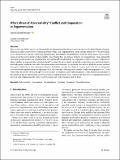Files in this item
Who’s afraid of adversariality? Conflict and cooperation in argumentation
Item metadata
| dc.contributor.author | Dutilh Novaes, Catarina | |
| dc.date.accessioned | 2021-01-25T16:30:10Z | |
| dc.date.available | 2021-01-25T16:30:10Z | |
| dc.date.issued | 2020-12-23 | |
| dc.identifier | 272469004 | |
| dc.identifier | 96620573-74c4-43ba-9248-576dbce6f66f | |
| dc.identifier | 000601482100001 | |
| dc.identifier | 85099499813 | |
| dc.identifier.citation | Dutilh Novaes , C 2020 , ' Who’s afraid of adversariality? Conflict and cooperation in argumentation ' , Topoi , vol. First Online . https://doi.org/10.1007/s11245-020-09736-9 | en |
| dc.identifier.issn | 1572-8749 | |
| dc.identifier.other | RIS: urn:D664D207129F18895D487A2A25042321 | |
| dc.identifier.other | RIS: Dutilh Novaes2020 | |
| dc.identifier.uri | https://hdl.handle.net/10023/21323 | |
| dc.description | This work was supported by H2020 European Research Council [771074-SEA]. | en |
| dc.description.abstract | Since at least the 1980s, the role of adversariality in argumentation has been extensively discussed within different domains. Prima facie, there seem to be two extreme positions on this issue: argumentation should (ideally at least) never be adversarial, as we should always aim for cooperative argumentative engagement; argumentation should be and in fact is always adversarial, given that adversariality (when suitably conceptualized) is an intrinsic property of argumentation. I here defend the view that specific instances of argumentation are (and should be) adversarial or cooperative to different degrees. What determines whether an argumentative situation should be primarily adversarial or primarily cooperative are contextual features and background conditions external to the argumentative situation itself, in particular the extent to which the parties involved have prior conflicting or else convergent interests. To further develop this claim, I consider three teloi that are frequently associated with argumentation: the epistemic telos, the consensus-building telos, and the conflict management telos. I start with a brief discussion of the concepts of adversariality, cooperation, and conflict in general. I then sketch the main lines of the debates in the recent literature on adversariality in argumentation. Next, I discuss the three teloi of argumentation listed above in turn, emphasizing the roles of adversariality and cooperation for each of them. | |
| dc.format.extent | 14 | |
| dc.format.extent | 577647 | |
| dc.language.iso | eng | |
| dc.relation.ispartof | Topoi | en |
| dc.subject | Adversariality | en |
| dc.subject | Cooperation | en |
| dc.subject | Argumentation | en |
| dc.subject | Agonism | en |
| dc.subject | Consensus | en |
| dc.subject | Scientific norms | en |
| dc.subject | B Philosophy (General) | en |
| dc.subject | T-NDAS | en |
| dc.subject.lcc | B1 | en |
| dc.title | Who’s afraid of adversariality? Conflict and cooperation in argumentation | en |
| dc.type | Journal article | en |
| dc.contributor.institution | University of St Andrews. School of Philosophical, Anthropological and Film Studies | en |
| dc.identifier.doi | 10.1007/s11245-020-09736-9 | |
| dc.description.status | Peer reviewed | en |
This item appears in the following Collection(s)
Items in the St Andrews Research Repository are protected by copyright, with all rights reserved, unless otherwise indicated.

